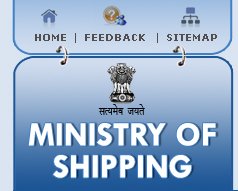India-Bangladesh protocol on waterways
In line with Government’s focus on improving connectivity to the North Eastern Region (NER), a landmark container cargo consignment sailed on inland waterways from Haldia Dock Complex (HDC) to the Inland Waterways Authority of India (IWAI) terminal at Pandu in Guwahati on 4 November 2019.
Inland vessel MV Maheshwari, carrying 53 TEUs (containers) of petrochemicals, edible oil and beverage among other products, will take about 12-15 days voyage will be an integrated IWT movement via National Waterway-1 (river Ganga), NW-97 (Sunderbans), Indo-Bangladesh Protocol (IBP) route and NW-2 (river Brahmaputra).
This is the first ever containerised cargo movement on the 1,425 km Inland Water Transport (IWT) route which is expected to establish the technical and commercial viability of IWT mode using these multiple waterways even as a series of pilot movements are planned on the stretch.
The latest IWT movement is aimed at providing a fillip to North East Region’s industrial development by opening up an alternate route for transportation of raw material and finished goods, said the Shipping Ministry on 3 Nov 2019.
Taking ahead the Government’s vision of promoting IWT, the first consignment of containerized cargo on National Waterway-1 (Ganga-Bhagirathi-Hooghly river system) was received by the Prime Minister on 12 November 2018 when he dedicated to the nation, the Multi Modal Terminal at Varanasi.
IWT on NW-1 has witnessed healthy growth with the augmentation of navigation capacity of Ganga under Jal Marg Vikas Project. The traffic on NW-1 has grown from 5.48 million tonne in 2017-18 to 6.79 million tonne in 2018-19. Out of the total traffic of 6.79 million tonne on NW-1, approximately 3.15 million tonne is the EXIM trade between India and Bangladesh using the Indo Bangladesh Protocol (IBP) routes.
The Protocol on Inland Water Transit and Trade (PIWTT) between India and Bangladesh allows mutually beneficial arrangements for the use of their waterways for movement of goods between the two countries by vessels of both countries. The IBP route extends from Kolkata (India) on NW-1 to Silghat (Assam) on NW-2 (River Brahmaputra) and Karimganj (Assam) on NW-16 (River Barak).
Two stretches of Bangladesh inland waterways viz. Sirajganj–Daikhawa & Ashuganj-Zakiganj on the IBP route are being developed at a total cost of Rs.305.84 crore on 80:20 cost sharing basis (80% being borne by India & 20% by Bangladesh). The development of these two stretches is expected to provide seamless navigation to and from North East India through waterways via the IBP route. The contracts for dredging on the two stretches have been awarded for achieving and maintaining requisite depth.
In addition to the above, India and Bangladesh have taken major steps to enhance utilization of waterways in the recent past. These include agreement on declaration of additional Ports of Call under PIWT&T at Kolaghat, Dhulian, Maia, Sonamura in India, and Chilmari, Rajshahi, Sultanganj, Daukhandi in Bangladesh.
Both countries have also agreed on the following:
i. Badarpur as an extended port of call of Karimganj (Assam, India) and Ghorasal of Ashuganj in Bangladesh.
ii. Tribeni as an extended port of call of Kolkata, India and Muktarpur of Pangaon in Bangladesh.
iii. Protocol route no.5 & 6 i.e. Rajshahi-Godagari- Dhulian to be extended upto Aricha (Bangladesh).
iv. Inclusion of Daudkhandi-Sonamura stretch on Gumti river as new route no. 9 & 10.
An SOP to facilitate the movement of goods to and from India through Chattogram and Mongla Ports in Bangladesh has been signed by the two countries on 5 October 2019. The proximity of these two ports will reduce logistics cost and improve trade competitiveness of North East states, said the Ministry. fiinews.com











